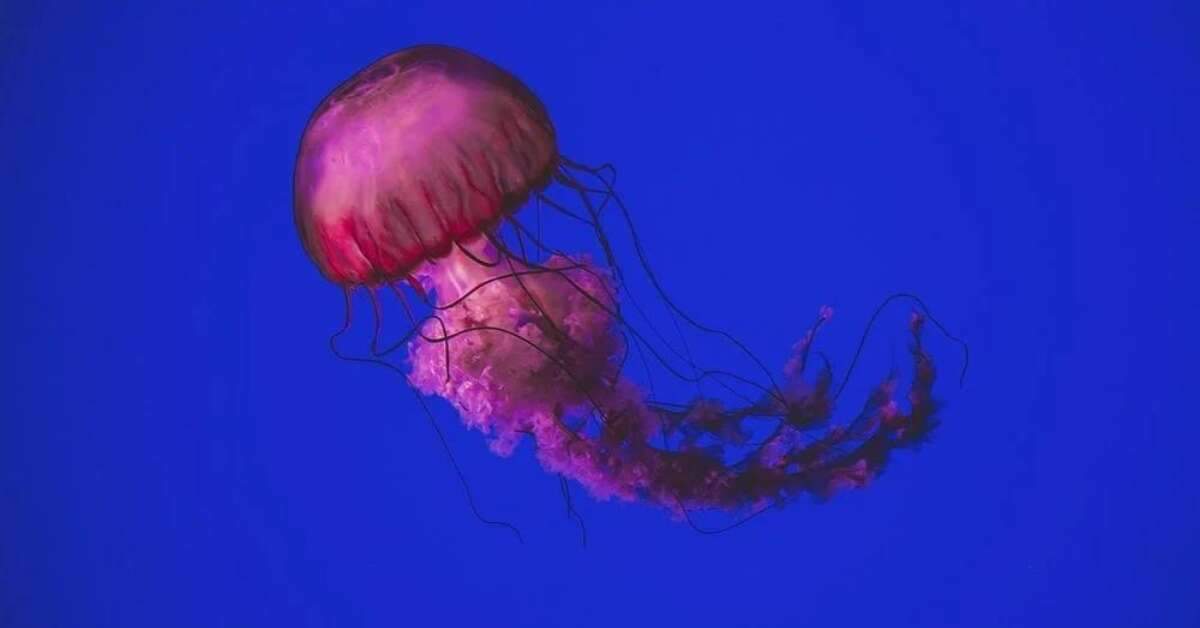Stay tuned to Yo! Vizag website and Instagram for more city news updates.


In a rare event, a bloom of venomous jellyfish, called Pelagia noctiluca, was observed by marine researchers along the Visakhapatnam coast on the morning of 3 April 2024. Known as the mauve stinger or purple-striped jellyfish, Pelagia noctiluca is seldom seen on India’s East coast. Numerous specimens, with bell diameters ranging from three to five centimetres, were spotted at RK Beach and other coastal areas popular with tourists and locals.
During a routine intertidal data collection exercise, marine researchers from the East Coast Conservation Team were surprised to find scores of these purple-coloured translucent creatures, resembling floating balloons, swimming among the rocks and washed ashore on the sandy beach at Rushikonda.
Pelagia noctiluca, while beautiful, is a deadly marine creature. It is venomous and can cause a range of illnesses from diarrhoea and severe pain to vomiting and anaphylactic shock, a severe allergic reaction that can quickly become life-threatening. The sting can also leave scars that last for years.
Found worldwide in tropical and warm seas, Pelagia noctiluca is unique among jellyfish species in that it has stingers not only on its tentacles but also on its bell. It is bioluminescent and can produce light in the dark.
This incident has alarmed marine biologists and researchers, who have urged the Visakhapatnam district administration to close off sections of the beaches. They recommend issuing an advisory warning people not to enter the water until the species is confirmed to have left the coast.
A jellyfish bloom, a rapid increase in the population of the species, usually results from a higher reproduction rate. Marine biologists often report jellyfish blooms as a consequence of rising ocean temperatures, a primary driver of significant population growth.
Venomous jellyfish blooms have previously caused extensive damage to the fishing industry and affected tourism. Earlier this year, a Pelagia noctiluca bloom was spotted in Phuket, Thailand, prompting the issuance of a safety warning. In the past, a bloom of Pelagia noctiluca damaged penned salmon at a fish farm in Ireland.
This is not the first time jellyfish sightings have been reported in Visakhapatnam. In 2015, a survey vessel, MFV Matsya Shikari, attached to the Vizag base of the Fishery Survey of India (FSI), reported a jellyfish bloom about 60 nautical miles off Visakhapatnam. This was the Crambionella stuhlmanni species. In 2021, yellow jellyfish were also spotted along the Rushikonda beach.
Read also: Marine Visitors Spotted on Visakhapatnam’s Coast!
Stay tuned to Yo! Vizag website and Instagram for more city news updates.
This post was last modified on 05/04/2024 1:35 pm
With its scenic mountain ranges of the Eastern Ghats, Vizag offers some great weekend treks.…
All year round, we see many movies hitting the silver screen. But only a few…
The month-long YogAndhra Campaign was officially launched at RK Beach in Visakhapatnam on the morning…
In an effort to boost urban mobility and give tourism a modern edge, the Greater…
Want to get away not just from the city but the State itself? Consider Odisha!…
Works for the much-anticipated metro rail project in Visakhapatnam is set to begin with a…
Leave a Comment